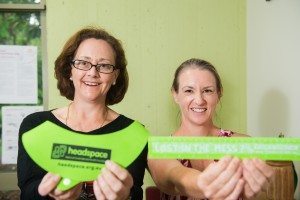hYEPP is on its way
A story from this year’s annual report…
Anglicare NT is soon to be branching out in a new direction with the launch of the first headspace Youth Early Psychosis Program (hYEPP) in the NT. The official launch of the program is set for July 1, 2015, with an interim service to run from April 2015.
hYEPP is to be the first clinical program Anglicare NT has ever run, and will see medical professionals coming on board alongside the mental health staff already working in our headspace programs. hYEPP is delivered by headspace and has been developed using research and evidence provided by Orygen Youth Health, gathered through their Early Psychosis Prevention and Intervention Centre (EPPIC).
Executive Manager for Mental Health and Wellbeing, Karyn Cook, started with Anglicare NT in October 2014. Within her first week, the headspace National Youth Mental Health Foundation gave approval for Anglicare NT to run hYEPP. Her first recruit was Senior Clinical Project Officer Rebecca Halsey, who is helping to build the new team.
Karyn has a long history with young people’s mental health having worked with founder EPPIC (Early Psychosis Prevention and Intervention Centre) Professor Patrick McGorry (former Australian of the Year) since its beginnings in the early 1990s.
The existing Anglicare NT headspace service is a primary care platform which aims for community awareness and early intervention in youth mental health, and support to young people and their families. Each year it works with up to 500 young people.
“People might be getting bullied, hearing voices, using drugs, or displaying other signs of mental health issues,” says Karyn. “Or it might just be that there’s been a change in their behaviour.”
At present, these clients are offered counselling or referrals to other services or to GPs, or alcohol and drugs services. But now Anglicare NT will also have the facility to treat people who have a first episode of psychosis or are risk of a psychosis in the age range of 12-25 years under the headspace umbrella delivered by Anglicare NT.
“Where hYEPP differs is that it’s a medical model. Generally these kind of services would be aligned to a public mental health service, so it’s quite a unique model. We’re going to have doctors and nurses, as well as peer support workers, psychologists, social workers and occupational therapists working for us” says Karyn.
“It’s not a traditional model of mental health care. It’s targeted to youth between the ages of 12 to 25, and it’s about working with people who are having their first episode of psychosis who haven’t been treated elsewhere, or those that are at risk of developing a psychosis.”
A psychosis is defined as a cluster of symptoms that causes a person to lose touch with reality and may indicate that a person is suffering from a serious mental health problem. Psychosis is an umbrella term which can be symptoms of many different mental health or even physical health conditions.
hYEPP will bring a whole new modality to the service delivery of Anglicare NT, which will come with new challenges, but will also greatly benefit the organisation.
“We have to comply with national mental health standards and all of the standards that headspace set down, which are extensive,” says Karyn. “But once we have done this, we will then be able to transfer a lot of these systems into other parts of the organisation. Things such as reporting, transporting clients, dealing with complaints… so there’ll be a lot of benefits.”
Anglicare NT will put in a new governance structure to sustain the service, support any medical and clinical staff we employ and protect them from liability. This will work as a sub-committee of the board.
With Victoria, Sydney, Gold Coast and WA already having hYEPP up and running, there is support and advice on hand. Local hYEPP services will be delivered through the headspace Darwin centre as soon as a venue is leased and adapted to suit the requirements of the services.
Anglicare NT is very excited about the opportunity to make a real difference in the lives of young people with serious mental health issues in the Greater Darwin region.

